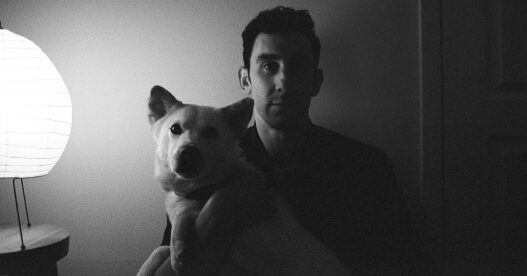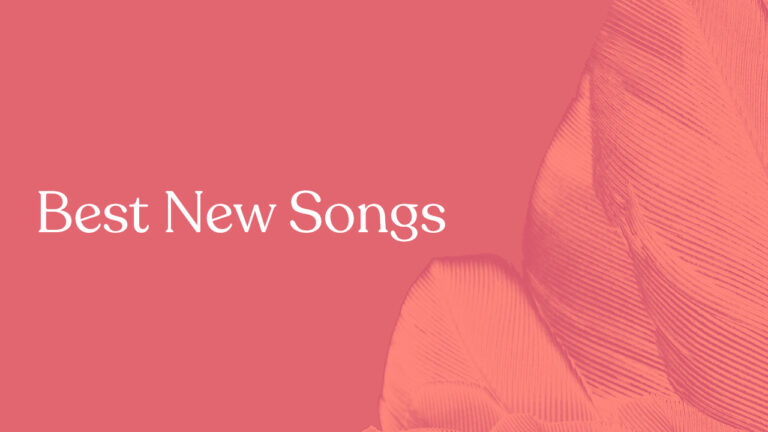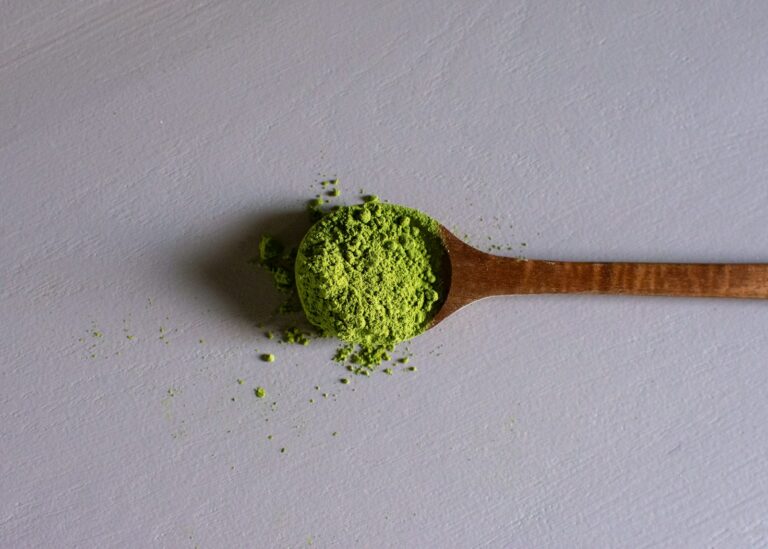The best kratom capsules have changed everyone’s perspective on kratom. People don’t need to mix and match to get it down; just 1 pill and you get all the effective results within minutes.
This convenience and discreetness have taken the high quality kratom capsules market to new highs, with some rare strains that help customers keep trying something fresh. But out of hundreds of brands, which ones are legit?
We tried 30+ of the best kratom brand capsules to find the 5 best kratom capsules you can buy online. These brands uphold safety, service, and price to provide an excellent kratom experience.
Let’s explore the best kratom brands for capsules!
What Is Kratom?
Kratom is a natural herb derived from the leaves of the Mitragyna speciosa tree, native to Southeast Asia. Traditionally used for its stimulant and sedative effects, kratom has gained popularity in the U.S. as a herbal supplement. People often seek kratom capsules for pain relief, mood enhancement, and increased energy.
According to a survey by the American Kratom Association, about 3 to 5 million Americans use kratom. If you’re looking to buy kratom capsules, ensure you choose from the best kratom brands to get premium kratom capsules that meet your needs. It’s vital to research the strongest kratom capsules available online for a reliable experience.
Top Kratom Brands To Buy Kratom Capsules
#1. Happy Go Leafy: Overall Best Kratom Capsules Online
#2. Super Speciosa: Organic Kratom Capsules To Boost Energy
#3. Nova Kratom: Best Vendor for Buying Variety of Kratom Capsules
#4. Kats Botanicals: Best To Buy Strongest Kratom Capsules
#5. Golden Monk: Premium Quality Kratom Capsules At Affordable Price
#1. Happy Go Leafy: Overall Best Kratom Capsules Online
Happy Go Leafy is one of the best kratom brands that offers potent kratom capsules. The capsules are packed with at least 90 grams of kratom powder per pack or 600mg of kratom powder per capsule, which makes it very potent. Beginners can experience all the benefits of kratom with just 1 capsule.
You can buy 17 different strains of the best kratom capsules starting at $29.99. The capsules help you take your daily dose of kratom without any bitter aftertaste. Happy Go Leafy makes formulations for daytime, evening, and nighttime use. You can also select the effects, like energy, relaxation, or clarity, to shop.
Highlights
- High Potency and Purity: Happy Go Leafy’s kratom capsules are known for their potency. Each capsule delivers 600 mg of pure kratom powder. Sourced from the finest growers in South Asia, these capsules ensure consistent quality and strength in every dose.
- Diverse Strain Selection: Happy Go Leafy offers a wide selection of popular strains, including Green Borneo, Green Maeng Da, Red Maeng Da, and White Bali. Each strain caters to different needs, from energy boosts to relaxation, ensuring there’s a perfect option for everyone.
- Customer Satisfaction Guarantee: Happy Go Leafy strongly focuses on customer satisfaction and has garnered numerous positive reviews. They offer refunds for up to 30 days within your original purchase date to return 100% of your money back.
- Exclusive Discounts: New customers can enjoy a 20% discount on their first order, with additional savings available through subscription plans. This makes Happy Go Leafy one of the most cost-effective options for premium kratom capsules.
- Fast and Free Shipping: Orders placed by 2 PM Eastern time qualify for same-day shipping, ensuring you receive your kratom quickly. Plus, all orders come with free shipping, adding even more value to your purchase.
Pros
- GMP-certified kratom vendor
- 150, 500, and 1000-count packs available
- 600 mg of powder in each capsule
- AKA-certified for safety
- 100% safe kratom products
Cons
- Only available on their online platform
=> Click here to visit the official website “Happy Go Leafy”
#2. Super Speciosa: Organic Kratom Capsules To Boost Energy
Super Speciosa offers the best kratom capsules online for energy. They feature strains like Green Malay and Emerald Select that provide immense energy throughout the day. This is great for people who need a kratom dose to power through their daily tasks.
You can choose to buy premium kratom capsules in 60 to 1,000 counts of capsules to get discounts and free delivery on your first order. Each capsule contains 500mg of kratom powder, and some are also formulated with a blend of kratom extract to make them extra potent and long-lasting. These kratom capsules are lab-tested for purity and contaminants.
Highlights
- Free Kratom Offer: Sign up with your email and phone number to receive two of Super Speciosa’s most popular kratom capsules or powders at no cost, with free shipping included. This is an excellent way to try their products without any commitment.
- First Order Discount: Enjoy a 15% discount on your entire cart for your first purchase. This offer is perfect for those looking to explore multiple kratom strains or stock up on kratom capsules while saving extra on their order.
- Fast Shipping: Super Speciosa provides same-day shipping for orders placed before 2 p.m. EST, ensuring you receive your kratom capsules quickly and efficiently. This speedy service is ideal for customers who want their products as soon as possible.
- Rewards Program: Earn 5 points for every $1 spent when you shop for premium kratom capsules or other products from Super Speciosa. These points can be redeemed at checkout for rewards, including discounts of up to $25 off your order.
- Diverse Selection: Super Speciosa makes it easy to find your perfect kratom capsules by allowing you to shop by color, effects, and strains. This diverse categorization helps you quickly locate the products that best meet your needs and preferences.
Pros
- 4x stronger formula available
- Blister packs for 10 capsules
- Potent kratom formula
- Free kratom by signing up
- GMP-certified for quality
Cons
- Not vegan-friendly, uses gelatin capsules
=> Click here to visit the official website “Super Speciosa”
#3. Nova Kratom: Best Vendor for Buying Variety of Kratom Capsules
Nova Kratom offers the best variety of kratom capsules online. The brand offers at least 69+ strains that have various effects. They are also known for having very rare strains, like Red Gold, Yellow Elephant, Super Green Indo, White Horn, and more.
Their kratom capsules also contain the industry standard of 500mg of organic kratom powder. They use a special fine grind quality, 100 microns. This ensures that the capsule contents are smooth and easy to absorb after breaking down. All of their products are tested for safety and purity, so you can be assured they are safe to consume.
Highlights
- Flexible Pricing Options: With prices ranging from $22.00 to $88.00, Nova Kratom offers flexible pricing to accommodate different budgets. They also provide options for split kilos and various capsule counts, making it easier to find a package that fits your usage and budget.
- Free Shipping: Nova Kratom offers free shipping on orders over $39.99, adding value and convenience to your purchase. This is especially beneficial for bulk buyers who want to save on delivery costs.
- Secure Payment Methods: Nova Kratom accepts credit and debit card payments, ensuring a smooth and secure checkout process. This convenience allows you to purchase your preferred kratom capsules with ease. You can check out using coupons so your order value can be lower.
- Protective Packaging: Nova Kratom uses resealable Mylar bags. These bags protect the capsules from environmental contamination, like dust or debris. So, when people buy kratom capsules, they can also store them easily in the packaging.
- Reliable Sourcing: Nova Kratom partners with trusted farms in Southeast Asia, ensuring that all kratom is pure and free from pesticides or harmful chemicals. So, you only get the most premium kratom capsules delivered to your doorstep.
Pros
- Diverse kratom blends are available
- High-quality and potent kratom
- 30-day money-back guarantee
- Coupons available of at least 20% off
- 24/7 customer support
Cons
- Might be expensive for some users
=> Click here to visit the official website “Nova Kratom”
#4. Kats Botanicals: Best To Buy Strongest Kratom Capsules
Kats Botanicals offers the strongest kratom capsules available online. Each capsule contains 600mg of pure kratom powder, which helps to take effect in 15 minutes on an empty stomach. Experienced users may need to take more than 1 capsule to feel the relaxing and other mental benefits of the kratom.
They are very discreet and easy to take, especially for beginners who want to try kratom capsules for daily use. They come in a glass jar, which you should store away from sunlight, and tightly seal to keep the freshness and potency of the kratom as good as new. You can start buying kratom capsules from them at $24.99 for 90 counts,
Highlights
- Lab-Tested Potency: Kats Botanicals ensures each capsule contains a consistent and potent dose, with lab-confirmed levels of Mitragynine and 7-Hydroxymitragynine. This guarantees you receive the full benefits of kratom in every capsule, enhancing your experience with precise and reliable effects.
- Discount Section: The brand’s website features a clearance section where you can explore various kratom capsules and other products at reduced prices, with up to 10% or more savings. However, you cannot use any additional coupons with these products.
- Free Trial Offer: New customers can try Kats Botanicals’ kratom for free by simply providing their mobile number. You can receive 3 customer-favorite kratom capsules or other products, which are shipped the same day at no cost. It is limited to one order per household.
- No Bitter Taste: One of the biggest advantages of Kats Botanicals’ capsules is that they eliminate kratom powder’s raw, bitter taste. This makes consuming kratom more pleasant, especially for those who are sensitive to the taste.
- Quality Assurance: Kats Botanicals sources its kratom from reputable farms in Southeast Asia, ensuring that all products are pure, free from pesticides, and of the highest quality. Their commitment to rigorous testing and ethical sourcing practices makes them a trusted choice for kratom enthusiasts.
Pros
- AKA-approved brand
- 30+ kratom strain selection
- 0.6g of kratom powder
- Blends of multiple strains available
- 20% off on the first order
Cons
- Limited bulk options for experienced users
=> Click here to visit the official website “Kats Botanicals”
#5. Golden Monk: Premium Quality Kratom Capsules At Affordable Price
Golden Monk offers the most affordable kratom capsules in the market. The best kratom capsules start at just $51.98 for 250 capsules, which is only $0.20792 per capsule, which is very budget-friendly for premium kratom capsules.
Each capsule contains 500mg of fine kratom powder and absorbs quickly to provide effects.
Some of their exclusive strains, such as Red Thai and Red Indo, can help you experience relaxing, calming, and pain-relieving effects within minutes. They use their unique formulas and combine high-quality kratom strains to produce strong and potent effects.
Highlights
- VIP Club: Sign up for the Golden Monk VIP Club with your email to gain access to exclusive discounts on kratom capsules and other products. This membership offers unique savings opportunities for loyal customers.
- Split Kilos: Golden Monk is renowned for its split kilo offerings, allowing you to purchase two variants of kratom capsules—500 counts each—for the price of 1000 capsules. This deal applies regardless of the strain combinations, giving you flexibility and value.
- Gift Cards: Golden Monk offers gift cards ranging from $25 to $500, perfect for gifting or personal use. These cards can be applied at checkout, making them a convenient way to save on your kratom purchases.
- High-Quality Packaging: All Golden Monk kratom capsules come in resealable Mylar bags, which ensure the product stays fresh longer. These durable bags are designed for easy storage and maintain the potency of the kratom capsules.
- Diverse User Base: Golden Monk caters to a wide range of kratom users, from beginners to experienced enthusiasts. With their extensive selection, you’re sure to find kratom capsules tailored to your needs, no matter your experience level.
Pros
- 30-day money-back guarantee
- Resealable bags for freshness
- Pure kratom leaves are used
- Visa and Mastercard accepted
- Free priority shipping for $49.99 and above
Cons
- Not suitable for people under the age of 18 years
=> Click here to visit the official website “Golden Monk”
How We Ranked The Best Kratom Capsules?
When evaluating the best kratom capsules, we focused on several key factors to ensure you get the most premium ones. Here’s how we ranked them:
Brand Reputation and Transparency
We began by looking at the best kratom brands that are well-known and respected in the Kratom community. Transparency is vital; brands that openly share their sourcing, manufacturing practices, and testing results tend to offer the best kratom brand capsules. Trustworthy brands usually provide information about the strain and origin, which is crucial when you’re planning to buy kratom capsules.
Third-Party Certifications
The best kratom capsules come with third-party certifications, ensuring that what you’re ingesting is both safe and potent. These certifications confirm that the capsules contain high-quality kratom capsules without harmful contaminants. Brands with third-party approval typically offer the strongest kratom capsules, giving you peace of mind.
Quality and Purity
The quality of kratom capsules is non-negotiable. We assessed each brand based on the purity of its capsules, ensuring it contains only premium kratom capsules without fillers or additives. Consistency in quality sets the best kratom brand capsules apart from the rest.
Customer Service
Good customer service can make or break your experience. We ranked brands based on their responsiveness and willingness to address concerns. Brands that offer excellent customer support are often those where you can safely purchase kratom capsules online.
Research
Lastly, we conducted thorough research to verify the effectiveness and reliability of the capsules. By gathering data from user reviews and scientific studies, we ensured that the best kratom capsules we recommend are truly the top-tier options in the market.
Benefits Of Kratom Capsules
Kratom capsules offer a range of benefits that make them a preferred choice for many users. Whether you’re new to kratom or a seasoned user, choosing the best kratom capsules can significantly enhance your experience.
Convenient and Portable
One of the primary advantages of kratom capsules is their convenience. Unlike loose powder, capsules are easy to carry, making them ideal for on-the-go use. Whether you’re at work, traveling, or simply out and about, the best kratom brand capsules ensure you can enjoy the benefits of kratom without any hassle. Many people prefer to buy kratom capsules for this reason alone.
Easy to Store
Kratom capsules are not only convenient to use but also easy to store. The capsules maintain the premium kratom capsules’ freshness, which is crucial for preserving the herb’s potency. With proper storage, you can extend the shelf life of even the strongest kratom capsules, ensuring they remain effective over time.
Longer Shelf Life
Speaking of shelf life, kratom capsules have a significantly longer shelf life compared to loose kratom powder. This is because the capsules protect the kratom from exposure to air and moisture, which can degrade its quality. When you buy kratom capsules from the best kratom brands, you’re investing in a product that will stay potent longer.
Precise Dosage
One of the standout benefits of using kratom capsules is the ability to measure precise dosages easily. Each capsule contains a pre-measured amount of kratom, allowing you to maintain consistent use. This is especially important for those using the strongest kratom capsules, where precise dosing is crucial for avoiding any adverse effects.
Simplified Consumption
Finally, kratom capsules simplify the consumption process. There’s no need to deal with the bitter taste of kratom powder, making it easier for those who might be sensitive to the taste. This ease of use is why many users choose to purchase kratom capsules online from the best kratom brands.
Other Different Forms of Kratom
While kratom capsules are highly popular for their convenience and ease of use, there are several other forms of kratom available, each offering unique benefits. Here’s a quick look at the most common alternatives to kratom capsules.
Kratom Powder
Kratom powder is the most traditional form and remains widely used due to its versatility. It can be mixed into drinks, smoothies, or even taken directly. Many users prefer powder for its flexibility in dosing, though it lacks the precise measurement you get with the best kratom brand capsules. For those who don’t mind the bitter taste, powder is a reliable option.
Kratom Shots
Kratom shots are a concentrated liquid form, offering a quick and potent dose. These are ideal for users seeking the strongest kratom capsules’ effects but in a different form. The convenience of carrying a small bottle makes kratom shots popular among those who need a quick energy boost.
Kratom Gummies
For those who prefer a more enjoyable experience, kratom gummies are a tasty alternative. They provide the same benefits as high quality kratom capsules but in a chewable form. Gummies are perfect for users who dislike the taste of powder or the hassle of making tea.
Kratom Tea
Kratom tea offers a more traditional and calming way to consume kratom. Brewing the tea allows users to enjoy a more gradual onset of effects, making it suitable for relaxing. However, unlike premium kratom capsules, tea may require more preparation time.
How Many Kratom Capsules Should You Consume?
Determining the right number of kratom capsules to consume depends on several factors, including your experience level, body weight, and the specific strain you’re using. Typically, beginners should start with 2 to 3 capsules to assess their tolerance. Each capsule usually contains about 0.5 grams of kratom powder, so consuming 2 capsules would provide around 1 gram of kratom.
For more experienced users, 4 to 6 capsules might be necessary to achieve the desired effects, especially when using high quality kratom capsules from the best kratom brands. If you’re taking the strongest kratom capsules, it’s essential to start with a lower dose to avoid any adverse effects.
Always purchase your kratom capsules online from reputable sources to ensure you’re getting premium kratom capsules that are accurately dosed. Consistency is key, so stick with the best kratom brand capsules to maintain a reliable experience. According to a survey, most users find their ideal dosage after some trial and error, but it’s crucial to start low and gradually increase as needed.
Which Factors to Consider Before Buying Kratom Capsules Online?
When deciding to buy kratom capsules online, it’s essential to consider several factors to ensure you’re getting the best kratom capsules available. Here’s what you should look for:
Product Quality
The first thing to consider is the quality of the product. Opt for high quality kratom capsules made from premium kratom that’s sourced from reputable regions. The best kratom brands typically provide detailed information about their sourcing, ensuring you’re getting the strongest and purest form of kratom available.
Lab Testing
Always choose kratom capsules that have undergone rigorous lab testing. This ensures the best kratom brand capsules are free from contaminants and meet safety standards. Look for brands that provide third-party lab results, as this transparency is a hallmark of premium kratom capsules.
Customer Reviews and Ratings
Before purchasing, check customer reviews and ratings. Kratom capsules often come highly recommended by other users. Reading reviews gives you insight into the effectiveness and reliability of the capsules, helping you avoid subpar products. High ratings usually indicate that the kratom capsules online are trustworthy.
Price and Value
Price is always a factor, but it is important to balance cost with quality. Kratom capsules might be more expensive, but they offer better value in terms of potency and safety. Avoid overly cheap options, as they might compromise on quality.
Shipping and Delivery Options
Finally, consider the shipping and delivery options. The best kratom brands usually offer fast and reliable shipping, ensuring that your kratom capsules online arrive on time and in good condition. Some even offer free shipping on bulk orders, adding more value to your purchase.
FAQs About Kratom Capsules
Q1. How long does it take for kratom capsules to work?
It can take anywhere from 30 minutes to 45 minutes for kratom capsules to take effect. Capsules take slightly longer to digest than powder because kratom capsules have to pass through your digestive system to get absorbed into your body. The onset time can vary depending on factors like your metabolism and whether you’ve eaten.
Q2. Are kratom capsules legal?
Kratom capsules are legal in the U.S. at the federal level, but their legality varies by state. As of now, kratom is legal in 44 states. However, six states—Alabama, Arkansas, Indiana, Rhode Island, Vermont, and Wisconsin—have banned its sale and use. Always check local laws before purchasing.
Q3. Where can I buy kratom capsules?
You can buy kratom capsules at Happy Go Leafy and other reputed vendors we have mentioned in our list. These online kratom shops can help you get lab-tested, premium kratom capsules at affordable prices. You can also take advantage of other benefits while making sure that you are consuming safe and effective kratom products.
Q4. Are kratom capsules safe to consume?
Yes, kratom capsules are safe to consume when purchased from a reputable vendor. However, safety also depends on factors like dosage, quality, and individual health. Brands like Happy Go Leafy, which conducts third-party testing to ensure purity, are a great choice. However, excessive use or poor-quality products can pose risks.
Q5. Can I take kratom capsules on an empty stomach?
Yes, you can take kratom capsules on an empty stomach, which may result in faster onset and stronger effects. However, some users may experience nausea or discomfort. If you’re new to kratom, it’s recommended to start with a lower dose or try taking it with a light snack to minimize side effects.
Final Words:
Kratom capsules can give you the same experience as powders but with the added benefits of being discreet and saving you from any bitter taste. Capsules are also handy and can be taken at any time of the day without any hassle.
Among all the recommendations, you can visit Happy Go Leafy first to explore their best kratom capsules. The brand has a diverse range of kratom strains and offers same-day delivery on all of its orders placed before 2 PM (Eastern Time). You can visit other websites on our list to explore more varieties of strains.
You should, however, always follow the proper dosage guidelines for these high quality kratom capsules to avoid any unnecessary side effects.















